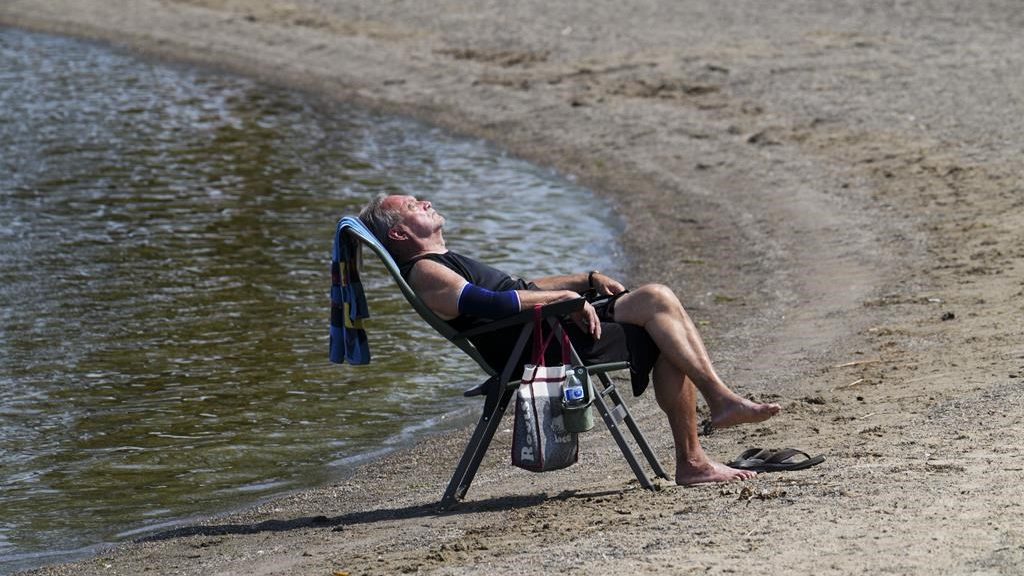Federal Court judge finds minister took too long in case of endangered spotted owl

Posted Jun 11, 2024 03:53:11 PM.
Last Updated Jun 11, 2024 05:54:39 PM.
A federal judge says it’s “difficult to fathom” how it could be reasonable for Canada’s environment minister to take more than eight months before recommending an emergency protection order for British Columbia’s northern spotted owl.
The ruling from Federal Court Justice Yvan Roy in Ottawa sides with the Wilderness Committee, a B.C.-based environmental group that filed a petition arguing Environment Minister Steven Guilbeault took too long to make his recommendation to cabinet.
Roy found the timing meant Guilbeault did not meet his responsibilities under the Species at Risk Act for what is believed to be B.C.’s last wild spotted owl.
The judge described the owl as a “highly endangered” species.
There is only one known wild spotted owl, a female, in the area of B.C.’s Fraser Canyon where cabinet was considering the emergency protection order.
Two male owls raised in captivity had also been released, but a statement from the provincial government in May 2023 said they had both been found dead.
The environment minister must recommend a protection order if he determines that a species is facing imminent threats to its survival or recovery.
Despite Guilbeault’s opinion, cabinet ultimately decided not to issue an emergency protection order for the owl. Instead, it endorsed what the federal government described as “a collaborative approach” with B.C. and Indigenous Peoples.
But that decision was not at issue in the petition, which argued Guilbeault took too long between deciding in January 2023 that the owl faced imminent threats due to old-growth logging and making his recommendation the following September.
Roy’s judgment says the law does not impose any timelines, allowing some time and flexibility to gather additional information about the impacts of an order.
Government lawyers had argued that it takes time to bring a matter before cabinet and there are requirements to collect information to present a fulsome picture, including socio-economic analysis and consultation with Indigenous Peoples.
However, the judge found “that argument must itself be tempered” by the purpose of the species-at-risk law, which establishes the need for urgent action.
“I find it difficult to fathom how a period of more than eight months could be reasonable once the opinion has been formed,” Roy wrote in his June 7 decision.
“Either the threats are imminent or not.”
The opinion that threats are imminent “triggers” the action that must be taken in making the recommendation for an emergency protection order, Roy wrote.
The judge acknowledged that the minister is entitled to interpret the species-at-risk law, but wrote that the “interpretation must be reasonable.”
No one from the Environment Ministry was immediately available to comment on the decision.
The legislation includes a provision for an emergency order to be repealed if the minister and cabinet decide a species is no longer in imminent danger, Roy noted.
“The recommendation to repeal once the imminent threat is no longer, makes it equally mandatory for the minister to act,” Roy wrote. “That constitutes in my view another signal that the initial recommendation must be done very quickly.”
Roy also awarded costs in the case to the Wilderness Committee.
The ruling says that prior to European settlement and industrial logging it’s believed there were as many as 500 pairs of the owls found exclusively in southwestern B.C.
It says there were an estimated 22 northern spotted owls in the wild in 2006, when the first federal recovery strategy for the species was published.
“The loss of mature old-growth forest habitat from logging was identified as the primary reason for the decline,” which has continued, the ruling says.
Roy’s decision also shows that B.C. officials disagreed with Guilbeault’s conclusion.
The province had extended a temporary pause on logging in two watersheds comprising spotted owl habitat until the end of February 2025.
But in April 2023, Guilbeault told the province he still believed the owl and its recovery were threatened and he intended to recommend an emergency order.
The ruling says B.C. officials believed the province’s captive breeding program and existing spotted owl management owl were sufficient to protect the species.
Roy found it was not necessary to attempt to prescribe what a reasonable period of time might be between a minister’s conclusion that a species faces imminent threats to its survival and submitting a recommendation to cabinet.
Still, Roy wrote that he was “tempted to agree with (the Wilderness Committee) that the delay … should be a function of the nature of the threat and its severity.”
In the case of the spotted owl, “a long delay cannot be justified,” he concluded.
This report by The Canadian Press was first published June 11, 2024.
Brenna Owen, The Canadian Press








